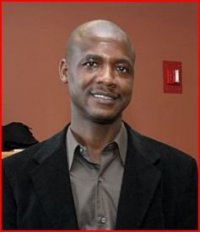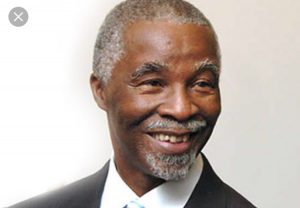
Former South African president Thabo Mbeki has rattled Africa’s corrupt leadership.
The African Union’s 2018 theme, ‘Winning the Fight Against Corruption: A Sustainable Path to Africa’s Transformation’ AU Summit held in Mauritania is both welcome and timely to combat the cankerworm of corruption in Africa.
In the immediate sense, this initiative assembled together the cream of Africa`s leaders spurred on by the conviction that the time is now, to strike a decisive blow against crime and corruption.It provides a critical opportunity to make progress in the fight against corruption and to mitigate its corrosive impacts on prosperity, growth, security and the fight against extreme poverty.
In the broad political context, it underscores the fact that our leaders had reached the collective conviction that the time for change had come to pass. African Union and Member States must seize this opportunity and deliver meaningful anti-corruption commitments as soon as possible.
According to the Africa Union (AU) around $148 billion are stolen from the continent by its leaders and civil servants every year. The recent Forbes’ list of most corrupt nations had 9 out of the first 16 countries coming from Africa’.
The African Union’s focus on combating corruption comes at a critical juncture. African citizens consistently place corruption among their top concerns. Corruption among government officials and bureaucracies has increased over the last decade according to the Ibrahim Index of African Governance.
The Panama Papers and other recent investigative leaks have exposed numerous flaws in anti-corruption regimes across the continent. The 2015 report issued by the High-Level Panel on Illicit Financial Flows from Africa, led by former President Thabo Mbeki, estimated that more than US$50 billion illicitly flows out of the continent every year.
The AU’s Convention on Preventing and Combating Corruption, adopted in 2003, outlines a robust set of principles, including rooting out corruption, strengthening democratic principles, institutions, and the rule of law, and increasing transparency and accountability in the management of public affairs. Yet implementation of the Convention’s principles has been uneven and inadequate across the continent.
State effectiveness and legitimacy are critical for building African government systems that are responsive and accountable to the needs of their citizens. Yet these key ingredients of lasting development remain weak across the continent.

To rebuild citizen trust in governments and to enable citizens and governments to work together to build a better future, citizens must be able to track budgets and follow the money from resources to results, and citizens, an independent media, and appropriate judicial and legislative checks and balances must be able to hold leaders accountable.
Meaningful steps toward making this vision a reality must be taken NOW. It is imperative that concrete progress to combat corruption be made by all AU Heads of State without and combat corruption. Vague or rhetorical promises to fight corruption will be insufficient to rebuild citizen trust in government and ensure that all Africans have equal opportunities to thrive.
The African Union and Members States must deliver an ambitious declaration that includes concrete commitments to prevent further corruption, give credible anti-corruption bodies and law-enforcement agencies the arsenal needed to effectively combat corruption, and that ensure that citizens have the information necessary to restore confidence in government institutions.






Alagi Yorro,
“To rebuild citizen trust in governments and to enable citizens and governments to work together to build a better future, citizens must be able to track budgets and follow the money from resources to results, and citizens, an independent media, and appropriate judicial and legislative checks and balances must be able to hold leaders accountable”.
Very apt Alagi. The conundrum may be that the average citizen is too busy scrounging around for sources of livelihood to be concerned about the intricacies of governance. It becomes a question of survival where the primary goal on the hierarchy of needs is to feed the family (security needs).
So does the question lie with meeting security needs of the citizenry or investing in civic education structures to empower citizens with the resources to participate effectively in governance? Should we commit to making the difficult choices of trimming the public service to the bone and employ savings to augment the earnings of those that remain in the bet to instill confidence and effectiveness? Or should these needs be run in tandem?
Will augmenting the earnings of public servants to reflect living wages/earnings deliver the desired results in The Gambia?
We know the problem.$148Big ones is a lot of cash. I am too embarrassed to detail what that kind of progress that kind of money will bring to the continent. But let’s talk about shared responsibility. Who defrauded us:
The Leaders – Armed robbers that raid the treasury
The civil servants – Conspirators and common thieves who help Leaders
The Citizens – Who refuse to speak and in some cases cheer on the Leaders
The Financial Institutions – Who collaborate and help hide the loot
I was disappointed that there was no specific steps and actions suggested to prevent stealing by politicians. Here is what I will do:
1. Requuire all member states to have a single treasury account.
2. Require that leaders cannot have foreign accounts.
3. Require that civil servants cannot have foreign accounts.
4. Require that government officials and civil servants must educate their children and wards locally.
5. Require that officials must receive medical treatment in their country.
6. Require that Financial institutions cannot do business with government officials outside of their country.
It is simple is it not, that is if we are serious about fighting corruption.
Corruption is an act of war and the major cause of conflict and insecurity in the continent.
What happened in South Africa under former President Mbeki’s time in office? I am not shooting the messenger, the former president, but what did he do about corruption during his time in office? At least the author of this article needed to touch on that a lil bit. Sometimes who the messenger is does say a lot. Dr. Sarr, may be, they did set up some mechanism to fight corruption in Africa here on out, and if the did, the author of this article needed to touch on that as well. Or may be they did not yet put forth any plans to fight corruption and that would be typical of how we do things in Africa; isn’t it? Talk is cheap! In Africa, I will believe it when I see it.
Dr Isatou Sarr, 6 point bulletin is correct.
Zero tolerance.
Samba says,
“Talk is cheap! In Africa, I will believe it when I see it”.
Well Samba, how do we get to the desired results if we don’t talk about the issues for the object of creating awareness and buy in. Remember that everyone can act the role of a college professor in this undertaking.
That’s part the reason that most positions on this forum are preceded or followed by qualifiers starting with the word, IF.
Andy, I do not follow what you wrote. “Talk is cheap! In Africa, I will believe it when I see it” refers to former president Mbeki. And who is acting like “the role of a college professor”? Please clarify. It is legitimate to be skeptical of former president Mbeki’s statements. He was once in a position of power to do something. If he had done things to fight corruption and you are aware of it, please fill us in. I am not aware of what he did about corruption when he was in power. May be he did some things and may be he did nothing. By the way, did you read my entire commentary instead of just quoting the last line of it?
Very had to see what Mbeki had done to fight corruption whilst in office. And as far as I am concerned, he has presided over the “legitimisation” of corruption in South Africa, when he deliberately pursued the policy of creating a Black middle-class which was unfairly allocated a sizeable chunk of that nation’s wealth. We see the consequences of that blatant looting of state resources today, with the emergence of a very wealthy Black middle-class amid an impoverished and near destitute Black working class majority. And the gaps are ever widening.
Africa knows her problems because Africa has interrogated and examined this question for a very long time.
Africa may even know the solution to her problems because she had spent so much time diagnosing her ailments.
If Africa was a human being, her problem would be getting the right doctor to manage her cure and treatment process.
In other words, our problem, at least for those who have the vote, is inability to select the right people into public office. The challenge is to help/educate the voters to make success of their RIGHTS to vote and to always hold public office holders to account.
To fight corruption, let’s do this:
1. Make it a requirement for all persons aspiring to hold certain public offices, to DECLARE their assets BEFORE and AFTER holding public office;
2. Make such DECLARATIONS easily accessible to interested persons, like the media, upon request, even if for a minimal fee;
3. Make it a requirement for persons who have acquired expensive assets, like vehicles and/or completed major development projects, like houses, to supply their sources of funds for such assets BEFORE holding public office; This would guard against putting people into public office who can’t justify or proof how they accumulated their assets.
4. Make it a requirement for Public Office holders who wish to acquire assets or undertake development projects above a certain amount to seek clearance from an independent authority. This independent authority would require to see evidence of funds, establish their sources and legitimacy before issuing clearance.
5. Punishment for those found guilty of corruption must be swift, harsh, lead to barring for life or a specific period and to loss of assets, to serve as a deterrence.
6. Any such actions must be made public and used as resource material for educational and civil awareness purposes, whilst also shaming the culprits at the same time.
This measures, I believe, will eradicate corruption or minimise it over time.
6. Make it a requirement or a legal duty for Public Office holders to explain queries from members of the public about changes to their living circumstances which seem to be beyond their means.
Btw, it should be taught as a National Duty to raise concerns about any public office holder who seems to be living beyond his/her means.
Bax, i believen you are correct. They know what to do to fight corruption if they really are interested in it rooting out. There is talking and there is doing. There is nothing wrong to talk about an issue of importance. It is another thing to actual do something about it. And yes, we do know what our problems are because we can think and analyze things.
my spell check again. I meant to say ” I believe” not “believe” whatever that means!